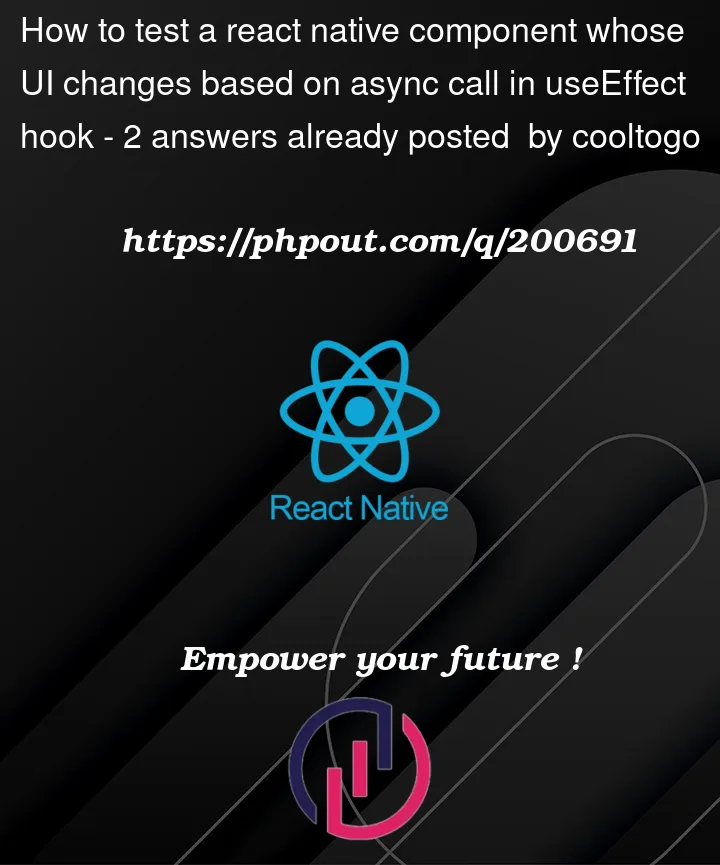I have a react native component OrdersScreen which I am not able to test because the component gets updated when setState : setRenderLoader(false) is called in React.useEffect() hook.
const OrdersScreen = ({ navigation }) => {
let [renderLoader, setRenderLoader] = React.useState(true);
let [ordersInfo, setOrdersInfo] = React.useState([]);
React.useEffect(() => {
ordersController.getOrdersForAgent() // some API call
.then((res) => {
console.log("getOrdersForAgent res", res);
setOrdersInfo(res);
if (res)
res.forEach(ord => dispatch(addOrder(ord)));
setRenderLoader(false);
})
.catch((err) => {
console.log("getOrdersForAgent err", err);
});
}, []);
return (
<View
style={ordersScreenStyle.container}>
{renderLoader
?
(<Loader />)
:
(<SectionList
...
/>)}
</View>
Below is the test code I have:
import renderer from 'react-test-renderer';
import {act} from 'react-test-renderer'
describe('<OrdersScreen/>', () => {
test('Verify order item', async () => {
const ORDER_ITEMS = DEFAULT_VALUE;
ordersController.getOrdersForAgent = jest.fn(() => Promise.resolve(ORDER_ITEMS));
const setRenderLoader = jest.fn();
let component;
await act(async () => {
//render with redux just wraps renderer.create(component) with a redux store
component = await renderWithRedux(<OrdersScreen />);
})
const root = component.root;
let tree = component.toJSON();
console.log('tree', tree);
if (store.getState().ordersReducer.length === 0) {
expect(setRenderLoader).not.toHaveBeenCalled();
}
else {
expect(setRenderLoader).not.toHaveBeenCalledWith(false);
}
})
})
I get the below error:
Consider adding an error boundary to your tree to customize error handling behavior.
Visit https://reactjs.org/link/error-boundaries to learn more about error boundaries.
142 | if (res)
143 | res.forEach(ord => dispatch(addOrder(ord)));
> 144 | setRenderLoader(false);
Could anyone please give pointers as to how this component is to be tested? I am quite new to this. Any help is appreciated.




2
Answers
Have you tried creating a separate function and then call that function in hook….this
to this
If
dispatch(addOrder(ord))isasyncthen you want to handle those actions inside afor..ofloop instead offorEach.